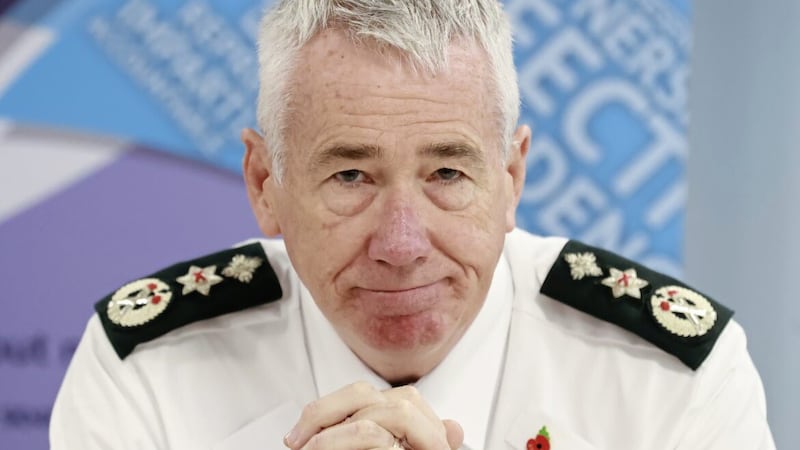ALTHOUGH we will get a better idea in the days ahead of what new chief constable Jon Boutcher sees as his own immediate priorities, there are several key challenges he must urgently address as PSNI leader.
These centre on budget, numbers and morale. These are interlinked and Mr Boutcher will find, unless circumstances drastically change, that he is able to affect some of these more than others.
Read more:
- Jon Boutcher ‘very honoured' to take up PSNI chief constable role
- Patrick Murphy: Sack the Policing Board and start again
- Jon Boutcher appointed new PSNI chief constable
As with other public services caught up in Tory austerity and secretary of state Chris Heaton-Harris's 'punishment budget', the PSNI is facing dire financial pressures. Beyond sounding the alarm about the consequences of funding cuts – as his predecessor Simon Byrne did, to little effect – it is difficult to see how Mr Boutcher will find this government any more receptive to pleas for more cash.
One stark outcome of the budget shortfall is a dwindling number of officers. There are around 7,000 today. That is already a concern, given the Patten Report's blueprint for policing the north called for 7,500, but looks likely to only get worse. Numbers are forecast to fall to just under 6,000 by 2025.
With officers leaving and not being replaced, the PSNI is effectively operating a recruitment freeze. In this unpromising context, Mr Boutcher will need to set out how he intends to recruit more officers and retain those he already has.
Dwindling numbers has a direct impact on staff morale. It is not the only thing, however, and it is here that Mr Boutcher has already made a positive impact as far as rank and file officers are concerned, reversing Mr Byrne's highly contentious decision to appeal the outcome of the Ormeau Road judicial review.
Beyond that, Mr Boutcher projects an aura of competence that eluded his predecessor, especially as his tenure spiralled towards its gaffe-prone conclusion. His leadership of Operation Kenova into the activities of Stakeknife has won him plaudits. It has given him direct insight into the unique circumstances in which policing in Northern Ireland operates, where the shadows of the past often loom over the present and threaten to darken the future.
The impasse at Stormont, a Policing Board of dubious effectiveness and the continuing dissident republican threat are among the other obstacles Mr Boutcher will have to navigate. He says himself that "there is much to do"; everyone will wish him well as he attempts to restore confidence in our police service.








